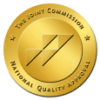Addiction doesn’t just end because someone wants it to. Plenty of people can stop for a little while—after a health scare, a promise to family, or even a short stay in detox. But once the stress creeps back in, life picks up again, and old triggers come knocking, staying sober gets a whole lot harder. That’s where residential treatment in Tennessee can be a game-changer.
Residential care gives you a chance to hit pause. It pulls you out of the chaos—away from daily pressure, toxic relationships, and constant access to substances—and puts you in a safe, structured space where healing becomes the priority.
Here, you’re not trying to recover while keeping up with life. You’re given the space to slow down and actually focus on getting better—physically, mentally, and emotionally.
At Tennessee Detox Center, our inpatient residential treatment program in Tennessee is designed for people who need more than outpatient support can offer. Whether you’re struggling with alcohol, opioids, benzos, stimulants, or something else, or you’re also managing anxiety, depression, trauma, or another mental health issue, we’re here to help you work through all of it—not just the symptoms on the surface.
You’ll have 24/7 care, evidence-based therapy, and a treatment plan that’s built around your needs—not a one-size-fits-all program. If you’re looking for a residential rehab in Tennessee that combines privacy, medical oversight, and a realistic plan for long-term recovery, we’re here to provide that.
Whether you’re looking for residential alcohol rehab, residential drug rehab, or a longer-term stay to fully reset, this level of care gives you the foundation to finally start moving forward—and stay there.

An Introduction to Residential Addiction Treatment
Residential addiction treatment is often misunderstood. Some people think it’s only for extreme cases or view it as a last resort. But the truth is, residential care is simply the right level of support for certain situations. It’s not about hitting rock bottom—it’s about giving yourself the time, space, and structure to actually recover.
Addiction affects how the brain handles stress, rewards, and self-control. [1] Over time, using drugs or alcohol becomes less about wanting to and more about needing to. When that happens, trying to get sober while staying in the same environment where the addiction took hold can feel nearly impossible.
That’s why residential treatment Tennessee programs exist—to interrupt the cycle. These programs provide a structured, substance-free setting where your days revolve around healing, not surviving. It’s not just about removing substances—it’s about rebuilding your life in a way that supports long-term recovery.
In residential care, recovery isn’t squeezed in between work and home stress. It is your daily structure. You live onsite, follow a consistent schedule, and spend your time in therapy, peer groups, education sessions, and activities that support your mental, emotional, and physical health. That kind of immersion helps reset patterns disrupted by addiction, like sleep, mood, and stress regulation.
Residential addiction treatment in Tennessee is often recommended when:
- Substance use is severe or has been ongoing for a long time
- Outpatient or IOP programs haven’t worked
- Relapse has happened more than once
- Mental health symptoms are making recovery harder
- Home isn’t a safe, supportive place to get clean
- Medical or psychiatric care is needed during early sobriety
For many people, this is the first time they experience what life feels like without the chaos of addiction. And that kind of stability? It opens the door to real insight, skill-building, and lasting change.
It is common for people to believe they should be able to quit on their own. This belief often leads to repeated cycles of stopping and starting, accompanied by guilt and frustration. Addiction, however, is not simply a lack of willpower. It involves changes in brain chemistry, stress response, and emotional regulation. [2]
Residential rehab Tennessee programs remove many of the barriers that make early recovery difficult:
- Constant exposure to triggers
- Easy access to alcohol or drugs
- Lack of structure
- Poor sleep and nutrition
- Social pressure
- Isolation or unsupportive relationships
By addressing these factors directly, residential treatment allows people to focus on recovery without fighting their environment at the same time.
Unlike short-term detox or crisis stabilization, residential addiction treatment is designed to last long enough for real change to occur. While some stays are thirty days, many people benefit from longer treatment. Long-term residential rehab Tennessee and extended stay residential rehab Tennessee programs allow more time to practice coping skills, address underlying issues, and prepare for life after treatment.
Recovery is not linear. Residential care provides a buffer against setbacks while clients learn how to respond differently to stress, cravings, and emotional discomfort.
Many people looking for private residential treatment in Tennessee are concerned about confidentiality, comfort, and quality of care. Residential treatment does not have to feel clinical or institutional to be effective. A well-designed program balances structure with dignity, offering a setting where clients can focus on recovery without feeling exposed or judged.
Luxury residential rehab Tennessee programs appeal to individuals who want a higher level of privacy and comfort while still receiving serious clinical care. While amenities alone do not create recovery, feeling safe and respected can make it easier to engage fully in treatment.
At Tennessee Detox Center, residential care is built around individualized planning, medical oversight, and a respectful environment that supports healing rather than distraction.
What Is Residential Addiction Treatment?
Residential addiction treatment is a live-in, full-time level of care where you stay at the facility throughout your recovery process. It’s not just about being in a safe place—it’s about having your days built around healing.
Clients in residential care follow a structured schedule that includes therapy, recovery education, medical support, and healthy routines that promote stability and lasting change.
You might also hear it called inpatient residential treatment in Tennessee, but unlike a hospital setting, residential programs like ours are more comfortable, private, and home-like. The goal is to provide 24/7 support in an environment that feels secure, not clinical, so you can focus on rebuilding your mental, emotional, and physical health.
Our residential addiction treatment in Tennessee is ideal for people who need more support than outpatient programs can offer. That might mean your substance use has become severe, you’ve relapsed after previous attempts to quit, or you’re also dealing with mental health issues like anxiety, depression, or trauma. It may also be that your home environment isn’t safe or stable enough to support early sobriety.
Whatever the reason, residential treatment gives you a reset. It removes the distractions and triggers that make recovery harder and replaces them with structure, supervision, and consistent care so you can finally start moving forward.

Every residential program has its own approach, but the most effective ones share some key elements, and it all starts with understanding the individual.
At Tennessee Detox Center, that means beginning with a thorough assessment to get a full picture of your substance use, mental health, and life circumstances. From there, your treatment plan is personalized to fit your specific needs and goals.
Throughout your stay, you’ll have consistent support from medical staff and licensed therapists. You’ll participate in both one-on-one and group therapy, work through underlying mental health concerns, and start building real tools for relapse prevention.
Days are structured to bring balance, focus, and accountability to your routine, helping you reestablish stability from the inside out.
If you’re in our residential drug rehab Tennessee program, we tailor your care based on the type of substances involved and your personal history with use or relapse. For clients in residential alcohol rehab in Tennessee, we often place additional focus on managing withdrawal risks, improving emotional regulation, and creating strategies for long-term sobriety that hold up in everyday life.
It’s not just about treating symptoms—it’s about creating a foundation for real, lasting recovery.

Outpatient and intensive outpatient programs (IOPs) can be a good fit for people who are medically stable, have a safe home life, and a strong support system. These programs allow you to live at home and attend therapy sessions a few times a week while continuing with work, school, or family responsibilities.
But here’s the challenge—when you’re still surrounded by daily triggers, access to substances, or unhealthy dynamics, recovery gets a lot harder.
Residential rehab in Tennessee removes those obstacles. Instead of trying to stay sober while juggling everyday life, clients live on-site in a structured, substance-free environment. You’re not just visiting treatment—you’re living it. That’s especially important in early recovery, when cravings are intense, emotions are unpredictable, and decision-making can be shaky.
Another key difference is the level of therapeutic support. Outpatient programs might offer one or two sessions per week. In residential care, therapy happens every day—sometimes multiple times a day.
That consistent, repeated exposure to recovery tools, peer support, and professional guidance helps shift old patterns and reinforce new ones.
For people who’ve tried outpatient treatment without success, or who need more protection and structure to get through the toughest stretch of early sobriety, residential treatment in Tennessee offers a deeper level of care that can make all the difference.

Detoxification and residential treatment serve different purposes. Detox focuses on managing withdrawal and stabilizing the body after substance use stops. Residential addiction treatment focuses on what comes next.
Many people relapse shortly after detox if they do not continue into treatment. That is why residential care is often recommended immediately following detox. Some programs, including Tennessee Detox Center, offer a continuum of care that allows clients to move directly from detox into residential treatment without interruption.
This continuity is especially important for individuals at high risk of relapse or medical complications. Same-day residential rehab in Tennessee options help ensure there is no gap between levels of care.

Who residential treatment is designed for
Residential addiction treatment is not only for one type of person. It can be appropriate for:
- Individuals with severe or long-standing addiction
- People who have relapsed after outpatient care
- Those with co-occurring anxiety, depression, PTSD, or other mental health conditions
- Individuals without a stable or sober home environment
- People who need 24/7 residential rehab in Tennessee support during early recovery
Residential addiction programs in Tennessee settings provide a level of containment that helps people regain control, rebuild routines, and develop the skills needed for lasting recovery.

Recovery is not a one-size-fits-all process, and for many people, short-term detox or outpatient therapy just isn’t enough. When substance use has deeply affected your health, relationships, work, and sense of self, a higher level of care is often necessary. That’s where residential treatment comes in.
Residential treatment in Tennessee provides a structured, immersive environment where individuals can step away from the chaos of everyday life and focus entirely on getting better. It’s more than just a place to stay—it’s a clinically driven experience that includes 24/7 supervision, medical support, mental health care, and therapeutic programming.
For those who are ready to make a real change but need accountability, stability, and professional guidance to do it, inpatient residential treatment in Tennessee can be life-changing.
At Tennessee Detox Center, we combine evidence-based therapies with personalized support, comfortable accommodations, and compassionate care. Our residential addiction program in Tennessee is designed to meet each person where they are, helping them move through early recovery with clarity, structure, and purpose.
Whether you’re coming to us for residential drug rehab, residential alcohol rehab, or treatment for co-occurring disorders, we provide an environment where you can focus fully on your healing.
We offer multiple levels of support and flexible length of stay options, including extended stay residential rehab in Tennessee for clients who need more time to stabilize and build new coping skills. Our clients come from all over the region—including Nashville, Chattanooga, Knoxville, and beyond—and they leave with renewed hope and a personalized plan for moving forward.
If you’ve been searching for a luxury residential rehab in Tennessee, a private residential treatment program, or just a place where you’ll be taken seriously and treated with respect, you’re in the right place. Residential rehab is where the real work of recovery happens, and we’re here to walk beside you through every step.

Residential addiction treatment refers to a live-in level of care where individuals stay on-site and receive full-time support for substance use and co-occurring mental health disorders. Unlike outpatient services, which allow people to return home after therapy sessions, residential treatment creates a 24/7 supervised environment where healing is the top priority.
This level of care is ideal for individuals who need more than part-time support,t especially if they’ve relapsed before, experienced a severe substance use disorder, or lack a safe, stable place to live.
At Tennessee Detox Center, our residential treatment program in Tennessee is designed to be immersive, therapeutic, and supportive. Every client receives a structured schedule, access to medical professionals and licensed therapists, and a safe space to work through the physical, emotional, and behavioral components of addiction.

What Makes Residential Treatment Different?
Residential treatment gives you the space to reset. It takes you out of the environment where addiction took hold—away from the people, places, and daily stressors that can trigger cravings or relapse. Instead, you’re placed in a safe, supportive space where recovery is the focus every single day.
This isn’t just about removing substances from your body. It’s about slowing down, stabilizing your brain and nervous system, and giving yourself the time to figure out what’s really behind your addiction. You’re not just getting clean. You’re learning how to live differently.
In residential treatment in Tennessee, therapy is part of your daily routine. You’ll dive into the emotional and behavioral patterns that fuel substance use. You’ll build coping skills, practice boundaries, and start planning for a life that doesn’t revolve around drugs or alcohol.
Here’s what that looks like:
- Individual therapy focused on trauma, unhealthy thinking, and behavior change
- Group therapy where you’ll build peer support and explore topics like relapse prevention, emotional regulation, and communication
- Family therapy, when appropriate, to help heal strained relationships and strengthen your support system
- Psychiatric care and medication management for co-occurring conditions like anxiety, depression, PTSD, or bipolar disorder [3]
- Life skills training to help you get back on track,k whether that’s budgeting, building a routine, or preparing for work or school
It’s this level of structure, support, and repetition that sets residential care apart. You’re not just attending treatment. You’re living recovery—one day at a time—with a team by your side and a plan that actually works.

The length of a residential stay varies based on your needs, insurance coverage, and progress. Some people stay for 30 days, while others benefit from long-term residential rehab in Tennessee that lasts 60, 90, or even 120 days.
We offer both standard and extended stay residential rehab, depending on what will set you up for lasting success.
We also understand that not everyone can wait for weeks to begin. That’s why we provide same-day residential rehab admissions in Tennessee for qualified individuals. When you’re ready to get help, we’re ready to act quickly.

Our facility offers treatment for all major substance use disorders, including:
- Residential drug rehab Tennessee programs for opioids, cocaine, meth, benzos, and more
- Residential alcohol rehab in Tennessee for individuals struggling with alcohol use disorder
- Residential addiction treatment in Tennessee services tailored to co-occurring mental health conditions
Each treatment track includes the core elements of residential rehab, with added services depending on the substance involved. For example, clients in residential alcohol rehab may receive medications to reduce cravings or prevent relapse, while clients in residential opioid treatment may benefit from MAT (medication-assisted treatment) as part of their recovery plan.

Where you recover matters. The environment you’re in can either increase stress and distraction—or create space for focus, reflection, and real healing.
At Tennessee Detox Center, we’ve intentionally designed a peaceful, retreat-style setting that helps you slow down and breathe. From the private rooms to the therapy spaces to the shared community areas, everything is built to reduce chaos and support your recovery—physically, mentally, and emotionally.
You won’t find cold hospital hallways or harsh lighting here. This isn’t a locked facility or an institutional setup. It’s a warm, welcoming space that feels more like home, with structure and safety built in.
That matters, especially for people looking for a private residential treatment option in Tennessee or a higher-end experience. Our luxury residential rehab in Tennessee program combines comfort and care. You’ll have chef-prepared meals, calming wellness activities, and trauma-informed support that respects your story. And while the setting is calm and restorative, the clinical care is serious and effective.
The right environment makes it easier to stay focused, feel safe, and stay committed to your goals. Here, every part of your surroundings is aligned with one purpose: helping you heal.

Residential Addiction Treatment in Tennessee: How It Works
The residential addiction treatment process at Tennessee Detox Center is designed to be both comprehensive and individualized. No two people arrive at the same starting point, and no two recovery journeys unfold in the same way.
That’s why we offer a full continuum of care—from detox to therapy to aftercare—with each phase carefully tailored to your needs, history, and goals.

Intake and Assessment
Every recovery journey starts with understanding where you’re coming from—and that’s exactly what the intake and assessment process is for. The moment you arrive at Tennessee Detox Center, our team is focused on getting to know you, not just your symptoms.
During this first step, our medical and clinical staff take the time to understand your full story. We’ll talk through things like:
- Your substance use history—what you’ve used, for how long, and how it’s affected you
- Any physical or mental health symptoms you’ve been dealing with
- Past treatment experiences, including what worked and what didn’t
- Current medications
- Family dynamics and social support
- Any mental health diagnoses, like anxiety, depression, PTSD, or bipolar disorder
This isn’t a quick checklist. It’s a chance to make sure your residential addiction treatment in Tennessee truly fits your needs from day one.
Based on everything we learn, we create a personalized treatment plan that maps out your care. That plan may include specific therapy approaches like CBT, DBT, or trauma therapy, psychiatric support or medication management, medical monitoring, and clear goals to work toward during your stay.
No two people come into treatment with the same background, and we don’t treat them like they do. This first step helps us build a foundation for recovery that’s actually realistic, personal, and sustainable.

Medical Detox (If Needed)
If you haven’t yet completed detox, we provide medical stabilization right here at the facility. This makes for a seamless transition from detox to residential care without needing to transfer to another location. Whether you’re detoxing from alcohol, opioids, benzos, or multiple substances, our team monitors your safety and comfort 24/7.
We use evidence-based protocols and medications when appropriate, including:
- Benzodiazepines for alcohol withdrawal
- Buprenorphine or methadone for opioid withdrawal
- Antidepressants or sleep aids for stabilization
- Non-addictive medications to manage anxiety or agitation
This immediate access to care helps prevent relapse between detox and rehab and eliminates the risk of being discharged without a clear next step. That’s part of what makes us a top choice for same-day residential rehab admissions in Tennessee.

Therapeutic Modalities We Use
Therapy is the heart of what we do at Tennessee Detox Center. Whether you’re here for residential drug rehab in Tennessee or residential alcohol rehab in Tennessee, your treatment plan will include a mix of evidence-based therapies designed to help you heal not just from substance use, but from the emotional weight that often comes with it.
Our approach is personalized, but here are some of the core therapies we use:[4]
- Cognitive Behavioral Therapy (CBT): This helps you recognize harmful thought patterns and learn how to shift them, so your actions and reactions start to align with the life you want to build.
- Dialectical Behavior Therapy (DBT): DBT teaches you how to manage emotions, cope with stress in healthy ways, and practice mindfulness—all essential skills for staying grounded in recovery.
- Motivational Interviewing: Not everyone feels ready to change on day one. This therapy is about meeting you where you are and helping you strengthen your own motivation to get better, at your own pace.
- Trauma-Informed Therapy: Many people in addiction treatment have a history of trauma. We provide a safe, respectful space to explore how those experiences may be connected to substance use, and how to start healing.
- Family Counseling: When appropriate, we involve your loved ones in the process. These sessions can help rebuild trust, improve communication, and support long-term recovery as a team.
If you’re part of our dual diagnosis track, your treatment may also include psychiatric care and medication management. Our team works closely with you to address mental health conditions like depression, anxiety, PTSD, or bipolar disorder alongside addiction because both need to be treated for real progress to happen.

Medical Monitoring and 24/7 Support
Addiction doesn’t take breaks, and neither do we. In our 24/7 residential rehab Tennessee setting, licensed nurses, medical providers, and trained support staff are available around the clock. Whether you need help managing withdrawal symptoms, processing an emotional breakthrough, or just talking through a hard moment, someone is always there.
This level of supervision is particularly important for people with:
- Recent overdoses
- High relapse risk
- Co-occurring mental illness
- Complex medical conditions
- A history of self-harm or suicidal ideation
Continuous support helps clients stabilize physically and emotionally while reinforcing the idea that recovery doesn’t have to be navigated alone.

Community and Peer Support
While clinical care is a core part of residential treatment, peer connection is just as essential. Many clients say that the relationships they build in treatment are some of the most powerful tools for healing. In group therapy, shared meals, and sober activities, you’ll be surrounded by people who get it because they’re walking the same path.
Our residential rehab setting in Tennessee is intentionally small and community-oriented. We keep group sizes limited to ensure every voice is heard and every person receives the attention they deserve.
What Are the Benefits of Residential Addiction Treatment?
Committing to a residential addiction program in Tennessee is a major decision—and one that can transform your life in ways you might not yet be able to see. The benefits of residential care are both immediate and long-lasting, especially when compared to less intensive forms of treatment.
Here’s what makes long-term residential rehab in Tennessee so effective:
- 1. A Safe, Trigger-Free Environment
One of the hardest parts of early recovery is managing the external triggers—people, places, and situations that make you want to use.
In residential care, you’re removed from that environment and given space to focus entirely on getting better. You don’t have to worry about running into old using friends, walking past a liquor store, or dealing with family conflict while you’re trying to detox and stabilize.
This physical and emotional separation is often the foundation people need to finally break the cycle.
- 2. Continuous Medical and Emotional Support
One of the biggest advantages of choosing 24/7 residential rehab in Tennessee is knowing that support is always there—day or night.
Recovery isn’t predictable. Cravings can hit out of nowhere. Emotions can get overwhelming. Physical symptoms might flare up unexpectedly. That’s why round-the-clock care matters.
At Tennessee Detox Center, you’re never alone in this process. Whether you need help managing withdrawal symptoms, talking through a tough moment, or adjusting medications for a co-occurring mental health issue, someone is always available to step in and support you. Our medical staff is on-site to monitor your health and safety, and our therapists and case managers check in regularly to help you stay grounded and moving forward.
This kind of constant care can make all the difference, especially for people who’ve tried to quit before but struggled without structure, or for those dealing with anxiety, depression, trauma, or other mental health concerns. It’s one thing to want to get better. It’s another to have a team beside you, making sure you can.
- 3. Structure and Routine
Addiction thrives in chaos. Residential treatment replaces that chaos with predictability and purpose. From meals to therapy to recreational time, your day is planned with intention.
This helps rewire your brain, rebuild executive functioning, and develop new coping skills that translate into the real world.
Routine also reduces anxiety, increases sleep quality, and improves emotional stability—all important for long-term recovery.
- 4. Holistic Healing
Real recovery goes beyond just stopping substance use. It’s about rebuilding the whole person. At Tennessee Detox Center, we take a holistic approach that supports not only your sobriety but your physical, emotional, and spiritual wellness as well.
That means helping you fuel your body with proper nutrition, improve your sleep, and learn how to care for yourself in ways that actually feel good and sustainable. We incorporate movement and mindfulness into your daily routine, whether that’s yoga, breathwork, or simply learning how to slow down and be present.
Creative therapies like art and music give you new outlets to process emotion, while optional values-based or spiritual reflection helps many people reconnect with a deeper sense of purpose.
This kind of care helps you come back to yourself—physically, mentally, and emotionally. It’s not about just making it through rehab. It’s about developing habits and healing practices that support a stronger, healthier life, long after you leave.
- 5. Peer Community
In treatment, you’ll meet people who know exactly what you’re going through. Group therapy and peer interaction foster mutual accountability, shared learning, and lasting connections. Many clients leave residential rehab with lifelong friendships and built-in support networks they can lean on during hard times.
- 6. Higher Success Rates
There’s a reason residential treatment is often considered the gold standard in addiction care—it works. Studies consistently show that people who complete residential addiction treatment have better long-term outcomes than those who rely on outpatient care alone.
This is especially true for individuals facing more severe substance use, repeated relapses, mental health challenges, or unstable home environments that make recovery harder to maintain.
The immersive, structured nature of residential rehab gives people the time and space to do deeper work without the distractions or pressures of everyday life. And the longer someone stays in treatment, the more opportunity they have to build healthy habits, learn coping skills, and gain confidence in their ability to stay sober.
That’s why we offer extended stay residential rehab in Tennessee for clients who need more time to truly stabilize and prepare for life after treatment. When you stay long enough to do the real work, you give yourself the best shot at lasting change.
Why Residential Addiction Treatment Is Important
Addiction is rarely just about the substance itself. It’s about what happens when substance use takes over your thinking, disrupts your life, and becomes the only way you know how to cope. At that point, quitting isn’t just hard—it can feel impossible without help.
That’s why residential addiction treatment in Tennessee is so important. It provides a structured, supervised environment where you can break the cycle of addiction, stabilize your mental and physical health, and learn how to live differently.
Addiction Is a Chronic, Relapsing Condition
According to the National Institute on Drug Abuse (NIDA), addiction is a chronic brain disorder—not a moral failing or lack of willpower. [5] Like other chronic illnesses, such as diabetes or high blood pressure, addiction requires ongoing care, behavior changes, and support systems to manage long-term. Residential rehab creates the space and support needed to make those changes stick.
In Tennessee, substance use continues to be a public health crisis. Opioid-related deaths remain high, and methamphetamine use is increasing across rural and urban areas. For many individuals and families, outpatient care alone hasn’t been enough. The structure and intensity of inpatient treatment are often the missing piece.
Most People Need More Than Detox
Detox is a critical first step in the recovery process. It clears substances from your system and manages the physical symptoms of withdrawal, but it doesn’t treat the underlying issues that led to substance use in the first place.
Trauma, depression, anxiety, grief, chronic stress, and broken relationships don’t go away just because the drugs or alcohol do.
That’s where residential treatment comes in. It picks up where detox ends and helps you rebuild. If detox is the reset button, residential rehab is the blueprint for what comes next.
The Brain Needs Time to Heal
Long-term substance use changes how your brain processes pleasure, makes decisions, and responds to stress. This is especially true with substances like opioids, alcohol, meth, and benzodiazepines. In early recovery, many people experience:
- Mood swings or irritability
- Intense cravings
- Fatigue or insomnia
- Anxiety, depression, or numbness
- Difficulty focusing or making decisions
These symptoms aren’t moral weaknesses. They’re part of post-acute withdrawal and early healing. Residential rehab gives your brain and body the time and space to recalibrate in a safe, supportive environment.
Therapy Takes Time and Repetition
True healing doesn’t happen in a few sessions. The most effective therapy models—like Cognitive Behavioral Therapy (CBT), Dialectical Behavior Therapy (DBT), and trauma-informed counseling—require consistency, repetition, and professional guidance. In residential care, you’re not just dropping in for an hour of therapy and going home. You’re living the work every day.
- You apply what you’re learning in real-time
- You process emotional setbacks as they happen
- You build trust with your treatment team and peers
- You start to internalize new tools and perspectives
This kind of daily immersion accelerates progress and increases the chances of long-term sobriety.
Life on the Outside Is Filled with Triggers
One of the biggest threats to early recovery is being thrust back into the same environment you were in. Old friends, family stress, financial issues, and even boredom can derail your progress if you’re not fully prepared.
Residential rehab offers a protected space to practice new skills and develop a relapse prevention plan before returning to real-world pressure.
Whether you’re dealing with alcohol, opioids, or multiple substances, residential alcohol rehab Tennessee and residential drug rehab Tennessee options provide a buffer zone—a safe place to get strong before facing the outside world again.
Who Should Consider Residential Treatment in Tennessee?
Residential rehab isn’t the right fit for everyone, but it’s often the most effective option for people facing significant challenges in their recovery. If any of the following situations apply to you or someone you love, it’s worth seriously considering inpatient residential treatment in Tennessee.
1. You’ve Tried to Quit Before and Relapsed
If you’ve gone through outpatient programs or tried to stop using on your own but keep returning to substances, residential treatment may offer the level of support and structure you need. The relapse cycle isn’t a sign of failure. It’s a sign that your brain needs more time, more care, and more space to heal.
Residential care eliminates access to substances, builds accountability, and allows you to dive deeper into the emotional and psychological aspects of addiction.
2. Your Substance Use Has Become Severe or Life-Threatening
If you’re using daily, experiencing withdrawal symptoms, or putting yourself at risk physically or legally, it’s time to get serious help. Residential treatment provides a medically supervised environment where safety is the top priority. This is especially critical if you’ve:
Overdosed
Mixed multiple substances
Had serious withdrawal symptoms (e.g., seizures, hallucinations)
Experienced blackouts or psychosis
24/7 residential rehab Tennessee programs like ours are built for exactly these situations.
3. You’re Struggling With Mental Health Symptoms Too
Addiction and mental health often go hand in hand. If you’re dealing with things like anxiety, depression, PTSD, bipolar disorder, or past trauma, it’s not enough to only focus on the substance use. Ignoring one while treating the other just doesn’t work because they’re usually connected.
That’s why our residential addiction program in Tennessee is built with dual diagnosis care in mind. We treat both at the same time, in the same place, with the same team. [6] Whether your mental health challenges came before the addiction or got worse because of it, we help you work through both so you can actually start to feel better—for real and for good.
This kind of integrated approach leads to stronger progress, fewer relapses, and a more complete recovery.
4. Your Home Environment Isn’t Safe or Supportive
Trying to stay sober while surrounded by people who are still using or people who don’t support your recovery can feel impossible. Whether you’re in a toxic relationship, living with people who drink or use, or simply don’t have a safe place to stay, residential rehab removes that obstacle.
In a secure, drug-free setting, you can focus fully on recovery without constantly being triggered or undermined. You’ll also build a new support system of peers and professionals who are walking the same path.
5. You Need Immediate Help
When things are spiraling, you can’t always afford to wait two or three weeks for a bed to open up. That’s why we offer same-day residential rehab admissions in Tennessee when available. If you’re ready to get help now, we’ll do everything we can to make that happen quickly and safely.
6. You’re Looking for High-Quality, Private Treatment
Some people prefer a more discreet, upscale environment for their recovery. Our private residential treatment in Tennessee combines clinical excellence with comfort, confidentiality, and personalized care. This can be especially valuable for:
Professionals
Veterans
First responders
Public figures
Individuals with high-stress jobs or trauma exposure
We also offer luxury residential rehab in Tennessee, amenities for those who want a more retreat-like experience without compromising clinical integrity.
Why Consider a Tennessee Detox Center for Residential Addiction Treatment
If you’re looking for residential treatment in Tennessee, you’ve likely seen dozens of facilities that all sound the same. So what makes Tennessee Detox Center different? It’s not just the amenities or location. It’s the full-circle care, the experienced team, and the seamless experience from the moment you walk in to the day you leave.
One of the biggest benefits of choosing Tennessee Detox Center is that we offer both medical detox and residential rehab under one roof. Many facilities only provide one level of care, forcing clients to move between providers and risk falling through the cracks during transitions.
Here, you can detox in a safe, supervised environment, then immediately step into the next phase of treatment without leaving the building. This same-day residential rehab Tennessee setup makes the recovery process smoother, safer, and more effective.
A lot of programs hand you a cookie-cutter treatment plan and send you through the same routine as everyone else. We don’t.
From the first intake conversation to your aftercare plan, your treatment is designed for you.
- Struggling with opioid use disorder? You’ll have access to medication-assisted treatment and trauma-informed therapy.
- Battling alcohol dependence? You’ll receive specialized support through residential alcohol rehab in Tennessee programming that includes relapse prevention, withdrawal management, and emotional regulation.
- Dealing with depression, anxiety, or PTSD alongside addiction? We’ll treat your mental health just as seriously as your substance use through dual diagnosis care.
We meet you where you are, and we help you get to where you want to be.
Our program is clinician- and medical-owned, which means the people running the show are the ones who’ve worked directly with clients. Many of our staff members are also in long-term recovery themselves. That creates a level of empathy and understanding that’s hard to fake.
Whether you’re in group therapy, meeting one-on-one with your counselor, or just having a rough day, you’ll be surrounded by people who get it and who genuinely care about helping you recover.
Recovery asks a lot of you—it’s emotional, vulnerable, and often overwhelming. That’s why the environment you’re in matters.
At Tennessee Detox Center, we offer private residential treatment in Tennessee in a space that’s intentionally designed to feel calm, comfortable, and judgment-free. It doesn’t feel like a hospital or a facility. It feels like a quiet retreat, where you can finally take a breath and focus on yourself.
You’ll be supported around the clock by a caring team, with access to medical supervision whenever you need it. Meals are prepared by our in-house chef with nutrition in mind, and therapy happens in small groups where you’re truly seen and heard.
You’ll have consistent one-on-one sessions each week, along with options like mindfulness practices, creative therapies, and family involvement if that’s part of your healing process.
If you’re looking for a luxury residential rehab in Tennessee that offers real clinical depth without sacrificing comfort, you’ll find that balance here. This is a place where you can feel safe, supported, and respected—because that’s what recovery should be.
Start Residential Treatment at Tennessee Detox Center today
Reaching out for help is often the hardest part. Once you make that first call, everything else gets a little easier and at Tennessee Detox Center, we’re here to walk you through every step.
We’re set up to make the process smooth, even if you need support right away. Whether you’re facing a crisis or just know it’s time for a change, we can often schedule same-day assessments and offer a seamless transition from detox into residential care. You don’t have to bounce between providers or navigate it on your own.
We work with major insurance plans and offer flexible options for how long you stay, whether that’s 30 days to get grounded or a longer stay to fully reset. And no matter where you’re coming from—Nashville, Knoxville, Chattanooga, or anywhere else in Tennessee—you’ll find compassion, clarity, and a plan that fits your life.
You don’t need all the answers today. You just need to take the next step.
Call us at (615) 488-5311, or reach out through our secure contact form. We’ll talk you through your options, help you understand your coverage, and figure out the best way to get started.
Your recovery doesn’t have to wait. It starts now.

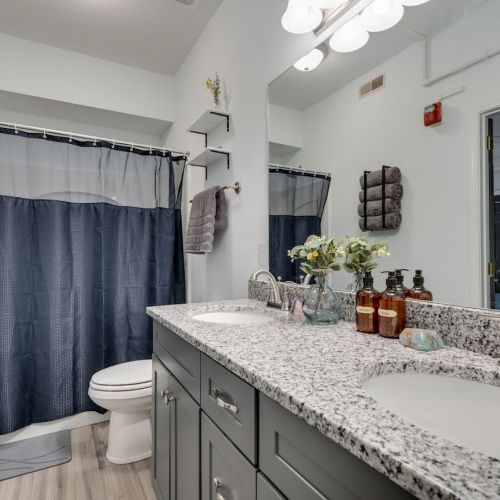

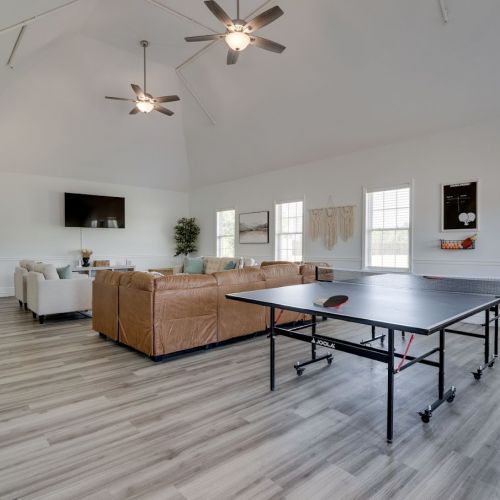




Frequently Asked Questions About Residential Treatment in Tennessee
Residential treatment, also called inpatient rehab, provides 24/7 care in a structured, supportive environment. Clients live at Tennessee Detox Center and receive individualized therapy, medical care, and peer support to help them heal from addiction and co-occurring mental health issues.
Residential treatment is ideal for individuals who:
- Struggle with moderate to severe addiction
- Have relapsed after outpatient care
- Have co-occurring mental health conditions
- Need medical detox followed by intensive therapy
- Lack a stable, supportive home environment for early recovery
If you or a loved one fits this profile, call us today for a free confidential assessment.
Our residential program typically includes:
- Medically supervised detox (if needed)
- Individual counseling with licensed therapists
- Group therapy and peer support
- Dual diagnosis treatment for co-occurring mental health issues
- Trauma-informed care
- Family therapy and education
- Life skills and relapse prevention training
- Aftercare planning and support
Every treatment plan is customized to fit each client’s needs.
Many clients stay 30, 60, or 90 days, depending on their clinical needs and recovery progress. Our team works closely with each client to recommend the best length of stay.
Yes. Tennessee Detox Center accepts most PPO/EPO insurance plans and offers self-pay options. Our admissions team can verify your insurance benefits quickly and confidentially. Call now to get started.
We offer expert care in a safe, welcoming environment. Our experienced team provides compassionate, individualized treatment using evidence-based therapies. You’ll receive the tools, support, and structure needed to build a strong foundation for long-term recovery.
Call Tennessee Detox Center today for a free, confidential consultation. Our admissions team is available 24/7 to help you take the first step toward recovery.
These terms are often used interchangeably, but generally, “inpatient” refers to hospital-based care (often shorter and medically focused), while “residential” rehab takes place in a more therapeutic, home-like setting with a greater focus on therapy and long-term recovery.
If you’re physically dependent on substances like alcohol, opioids, or benzodiazepines, medical detox is often the first step. We provide both detox and residential care at the same facility, so you can move from one phase to the next without delay.
Not at all. Residential care is ideal for anyone who needs time away from triggers, structure to stabilize, or extra support for mental health. Whether you’re early in your addiction or facing long-term relapse, residential treatment can provide the reset you need.
We’ll send you a full packing list before you arrive, but the basics are simple. Bring comfortable clothes, your usual toiletries, and any medications you’re currently taking. You’re also welcome to bring personal items that make you feel more at home, like a favorite book, journal, or a few photos that ground you. If you’re not sure about something, just ask. Our team is always happy to walk you through it so you feel prepared and at ease before your stay begins.
Get Family Support Now
Supporting Families Through Recovery
We understand addiction affects the whole family. Our comprehensive family program helps rebuild trust and restore relationships.
Weekly Family Therapy Sessions
Educational Workshops
Support Groups
Communication Skills Training
American Addiction Centers. (n.d.). Residential rehab guide. https://americanaddictioncenters.org/rehab-guide/residential
Substance Abuse and Mental Health Services Administration. (n.d.). Find treatment. https://www.samhsa.gov/treatment
Substance Abuse and Mental Health Services Administration. (n.d.). Medications for substance use disorders. https://www.samhsa.gov/medications-substance-use-disorders
Centers for Disease Control and Prevention. (2023). Understanding the epidemic. https://www.cdc.gov/drugoverdose/epidemic/index.html
Morin, A. (2022, November 8). What is residential treatment? Verywell Mind. https://www.verywellmind.com/what-is-residential-treatment-5205312
National Institute on Drug Abuse. (2020). Treatment and recovery. https://nida.nih.gov/publications/drugs-brains-behavior-science-of-addiction/treatment-recovery

Medically Reviewed By:
Dr. Vahid Osman, M.D.
Board-Certified Psychiatrist and Addictionologist
Dr. Vahid Osman is a Board-Certified Psychiatrist and Addictionologist who has extensive experience in skillfully treating patients with mental illness, chemical dependency and developmental disorders. Dr. Osman has trained in Psychiatry in France and in Austin, Texas. Read more.

Clinically Reviewed By:
Josh Sprung, L.C.S.W.
Board Certified Clinical Social Worker
Joshua Sprung serves as a Clinical Reviewer at Tennessee Detox Center, bringing a wealth of expertise to ensure exceptional patient care.
Read More
The Joint Commission – The Gold Seal of Approval® signifies that Tennessee Detox Center meets or exceeds rigorous performance standards in patient care, safety, and quality. It reflects a commitment to continuous improvement and clinical excellence.
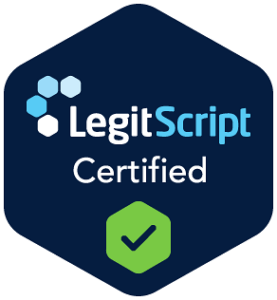
LegitScript Certified – Confirms that Tennessee Detox Center operates in full compliance with laws and regulations, and meets high standards for transparency and accountability in addiction treatment marketing.
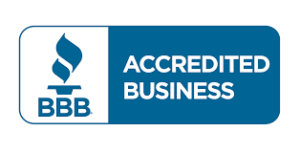
BBB Accredited – Demonstrates ethical business practices, commitment to customer satisfaction, and a trusted reputation within the community.
Psychology Today Verified – Indicates that Tennessee Detox Center is listed on Psychology Today, a trusted directory for verified mental health providers and treatment centers.
HIPAA Compliant – Ensures all patient health information (PHI) is protected and managed in accordance with strict federal privacy and data security standards.
ASAM Member – Tennessee Detox Center is a proud member of the American Society of Addiction Medicine (ASAM), reflecting a commitment to science-driven and evidence-based treatment standards.

Rutherford County Chamber of Commerce – Membership signifies active participation in the local community and support for regional growth and civic collaboration.
Addiction Group. (n.d.). Tennessee drug and alcohol statistics. Retrieved July 28, 2025, from https://www.addictiongroup.org/tennessee/drug-statistics/
Substance Abuse and Mental Health Services Administration (SAMHSA). (2023). 2023 ICCPUD state report: Underage drinking prevention – Tennessee. U.S. Department of Health and Human Services. Retrieved from https://library.samhsa.gov/sites/default/files/tennessee-iccpud-state-report-2023.pdf
Tennessee Alcoholic Beverage Commission. (2024). Report to prevent underage drinking, drunk driving, and other harmful uses of alcohol (PC 961). State of Tennessee. Retrieved from https://www.tn.gov/content/dam/tn/abc-documents/abc-documents/PC-961-2024-Report-to-Prevent-Underage-Drinking-Drunk-driving-and-Other-Harmful-Uses-of-Alcohol.pdf
National Institute on Alcohol Abuse and Alcoholism (NIAAA). (2012). Alcohol withdrawal syndrome. In S. C. Merrill & B. S. Frances (Eds.), The management of alcohol use disorders: A practical guide for clinicians (NIH Publication No. 12–5191). National Center for Biotechnology Information. Retrieved from https://www.ncbi.nlm.nih.gov/books/NBK64119/
[2] https://nida.nih.gov/publications/drugs-brains-behavior-science-addiction/drugs-brain
[3] https://www.samhsa.gov/substance-use/treatment/co-occurring-disorders
[4] https://www.naatp.org/treatment-methods-evidence-based-practices

Medically Reviewed By:
Dr. Vahid Osman, M.D.
Board-Certified Psychiatrist and Addictionologist
Dr. Vahid Osman is a Board-Certified Psychiatrist and Addictionologist who has extensive experience in skillfully treating patients with mental illness, chemical dependency and developmental disorders. Dr. Osman has trained in Psychiatry in France and in Austin, Texas. Read more.

Clinically Reviewed By:
Josh Sprung, L.C.S.W.
Board Certified Clinical Social Worker
Joshua Sprung serves as a Clinical Reviewer at Tennessee Detox Center, bringing a wealth of expertise to ensure exceptional patient care.
Read More
The Joint Commission – The Gold Seal of Approval® signifies that Tennessee Detox Center meets or exceeds rigorous performance standards in patient care, safety, and quality. It reflects a commitment to continuous improvement and clinical excellence.

LegitScript Certified – Confirms that Tennessee Detox Center operates in full compliance with laws and regulations, and meets high standards for transparency and accountability in addiction treatment marketing.

BBB Accredited – Demonstrates ethical business practices, commitment to customer satisfaction, and a trusted reputation within the community.
Psychology Today Verified – Indicates that Tennessee Detox Center is listed on Psychology Today, a trusted directory for verified mental health providers and treatment centers.
HIPAA Compliant – Ensures all patient health information (PHI) is protected and managed in accordance with strict federal privacy and data security standards.
ASAM Member – Tennessee Detox Center is a proud member of the American Society of Addiction Medicine (ASAM), reflecting a commitment to science-driven and evidence-based treatment standards.

Rutherford County Chamber of Commerce – Membership signifies active participation in the local community and support for regional growth and civic collaboration.
Compassionate Rehab Services
Evidence-Based Treatment
Get Family Support Now
Supporting Families Through Recovery
We understand addiction affects the whole family. Our comprehensive family program helps rebuild trust and restore relationships.
Weekly Family Therapy Sessions
Educational Workshops
Support Groups
Communication Skills Training
Hear directly from those who have walked the path to recovery. Our patients’ stories highlight the compassionate care, effective programs, and life-changing support they’ve experienced. Let their journeys inspire you as you take your first steps toward healing.
Thank you all so much!
The facility itself is clean, well-maintained, and equipped with all the necessary amenities to provide a serene and supportive environment.
What truly stands out is the personalized approach to care. The team developed a treatment plan tailored to my specific needs, incorporating both medical and holistic therapies. This comprehensive approach not only addressed my physical withdrawal symptoms but also supported my mental and emotional well-being.
The counselors and therapists offer a range of therapies that helped me understand the root causes of my addiction and develop effective coping strategies. Group therapy sessions provided a safe space to share experiences and gain insights from others on similar journeys.
Overall, my experience with this medical detox program was life-changing. The compassionate and skilled staff, combined with the personalized treatment approach, provided me with the foundation I needed for a successful recovery. I highly recommend this facility to anyone seeking a safe and supportive environment for detox and recovery.
But it's the people who make this place truly special. The staff, they've been there, they understand the struggle. No judgment, just support, encouragement, and a genuine desire to help you heal. They treated me like an old friend, even though I was just visiting for my buddy.
They've got a whole range of therapies to help you on your journey – individual counseling, group sessions, and even a fitness center to get you moving again. It's not just about detox. It's about rebuilding your life from the ground up.
My friend, the owner, he's living proof that this place works. He poured his heart into creating a haven for those seeking recovery, and his passion shines through in every detail.
So, if you're ready to take that first step, this is the place. Trust me, they'll walk beside you every step of the way.



